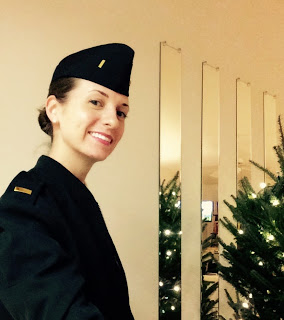Does anyone in academia even know what is self-care and its value?
 Today, Kate is sharing her views on self-care in academia. As an American abroad, Kate graduated with her PhD in Archaeology from the University of Sheffield in 2010. At present Kate splits her time working for the US government as a Navy Intelligence Officer during the day and writing on Greek Bronze Age archaeology at night. She blogs at: https://duckingoutfromacademia.wordpress.com
Today, Kate is sharing her views on self-care in academia. As an American abroad, Kate graduated with her PhD in Archaeology from the University of Sheffield in 2010. At present Kate splits her time working for the US government as a Navy Intelligence Officer during the day and writing on Greek Bronze Age archaeology at night. She blogs at: https://duckingoutfromacademia.wordpress.com
Until Eva brought the topic of self care in academia to my attention, I realized I have never once heard this phrase mentioned—the very idea of caring for oneself, with all its attendant soothing and calming overtones, runs counter to academic culture. We simply do not talk about caring for oneself; we talk about surviving—and we reward those who can thrive in competition. We don’t tell graduate students to nurture themselves—we tell them to get used to it.
I cannot consider the issue of self care without acknowledging how the desertification of the job market—at least in the arts and sciences—exerts relentless pressure on all the young academics I know, myself included. I was in grad school from 2002 until 2010, and reflecting on the (few and far between) job discussions I had while I was a student I’ve come to the conclusion that PhD supervisors frequently err on the side of caution and tell all of their students they’ll get jobs. This isn’t necessarily a bald-faced lie; now that I’ve been on the job market myself, and seen many others cycle in and out of positions, the truth is: The job market is unpredictable. Unpromising and lackluster academics have as good a chance at succeeding as anyone else. Certainly back in 2002 no one could have foreseen how bad the academic job market would become. Indeed, I am not sure we fully understand how bad the job market is even now. Where will the jobs be in 10 years? Who will be holding them? Perhaps at no other time in the past two centuries can an early career researcher feel certain that her future as an academic will be very different from the generations of professors that preceded her. And there is perhaps little else to be certain of.
Anxiety about the state of my future career has a tendency to creep into my job applications, interviews, and even how I do my job when I hold the position. The problem lies in my head; I keep trying to make my life in the actual world follow my projection of life as a tenured academic, and of course, the reality is that I am not even sure there will be tenured Aegean prehistoric archaeology positions anymore. It is a tale as old as time; I get down and out about my job—and myself—because I keep trying to live in a fantasy. I regularly have to remind myself that we are living in a new era. Academic jobs in the future may not have tenure. University level teaching may become a product for sale. I am not sure where I will fit into this new world. No one does. The bottom line is that the greatest care I can extend to myself in this context is to stop living by these outdated expectations.
I had to come to this uncomfortable realization when I was at my most recent postdoc, a position I hated so much I wanted to leave after only a few weeks. I didn’t know how I could make it an entire year. In the end, I realized that my fear of being a failure was the only thing tying me to desperate unhappiness. And so I left the position. It turns out to have been a great decision for me, one that I look back on and give a mental thumbs up to my earlier miserable self. At first I dreaded telling people what I had done, but I have been surprised by the response—my PhD supervisor and my cadre of advisors who I turn to for guidance have been utterly supportive from the outset. I think they have been watching students’ careers wilt in the past couple of years, which must be emotionally and intellectually damaging for them as mentors. There has also been a minority of academics who were appalled at my choice. I politely listen to their advice about what they would have done if they had been me while mentally assessing them as being straitjacketed by their own projections.
Reading about freedom is not the same thing as feeling free. I do not feel free from my expectations of success 100% of the time. At times when I grapple with feelings of failure, I am worth the effort it takes to pause and remember that I am living my own life. I like to ask myself on a regular basis what I would do if I wasn’t afraid; the answers to this question frequently make my playing field twice as large. My path is wide open; it will encompass as much intellectual pursuit as I desire, and probably as much adventure, good times, and creativity as I’d like too. This attitude is sometimes called “having it all”, but I do not see it that way. I am not having it all. Neither am I turning my back on a “career” so that I can enjoy “life.” I am having what is mine.
